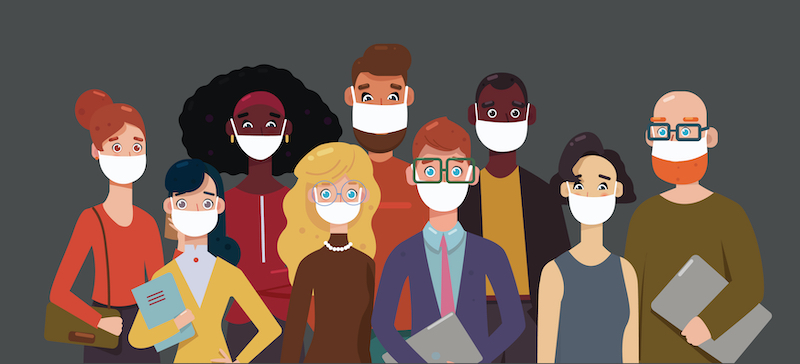


Coronaviruses are a large family of viruses that cause illnesses ranging from the common cold to severe infections such as Severe Acute Respiratory Syndrome (SARS-CoV) and Middle East Respiratory Syndrome (MERS-CoV). Several coronaviruses are known to be currently circulating in animals that have not yet infected humans. Strains not previously identified in humans are called a novel coronavirus.
Coronaviruses are zoonotic, meaning they are transferred to people from animals. Previous detailed investigations have found that SARS-CoV was transferred from civet cats to people and MERS-CoV from camels.
Coronavirus (COVID-19), which was first reported in December 2019 in Wuhan City in China, is the most recent strain infecting humans.
Symptoms
Symptoms of coronavirus range from mild illness to pneumonia. People with coronavirus may exhibit the following symptoms:
- Fever
- Flu-like symptoms such as coughing, sore throat and fatigue
- Shortness of breath.
High risk groups
In Australia, the people most at risk of contracting the virus are those who have:
- Recently been to mainland China, Iran and other high-risk areas
- Been in close contact with someone who is a confirmed case of the coronavirus.
If you are at risk of contracting the virus, the Australian Government recommends you:
- Isolate yourself for 14 days
The virus is most likely spread through:
- Close contact with an infectious person
- Contact with droplets from a person’s cough or sneeze
- Touching objects or surfaces that have cough or sneeze droplets from an infected person.
While most people will easily recover from coronavirus, the illness can be far more severe for a number of groups. People at greatest risk are:
- Elderly
- Very young
- Those with chronic health conditions.
Prevention
Some suggest wearing face masks could be helpful to preventing the spread of virus. If you are well, there is little evidence to suggest that wearing a mask will prevent transmission.
Practising good hygiene is best to protect against infections. Good hygiene includes:
- Washing your hands often with soap and water
- Using a tissue to cover your mouth and nose when you cough and sneeze
- Avoiding close contact such as touching.
For advice on travelling outside Australia, see Smart Traveller.
Diagnosis
If you have become unwell and think you may have symptoms of coronavirus, seek medical attention. Call ahead of time to book an appointment or contact House Call Doctor for an online doctor consult. Inform your doctor of your symptoms, recent travel history and any recent close contact with someone who has a confirmed case of coronavirus.
Treatment
There is no treatment for coronavirus, though medical care can treat most of the symptoms. Viral diseases such as coronavirus cannot be treated by antibiotics. If you have been diagnosed with coronavirus, isolate yourself in your home. Contact House Call Doctor for an online doctor consult if you feel you may have coronavirus.




